
The Business of Fashion
Agenda-setting intelligence, analysis and advice for the global fashion community.

Agenda-setting intelligence, analysis and advice for the global fashion community.
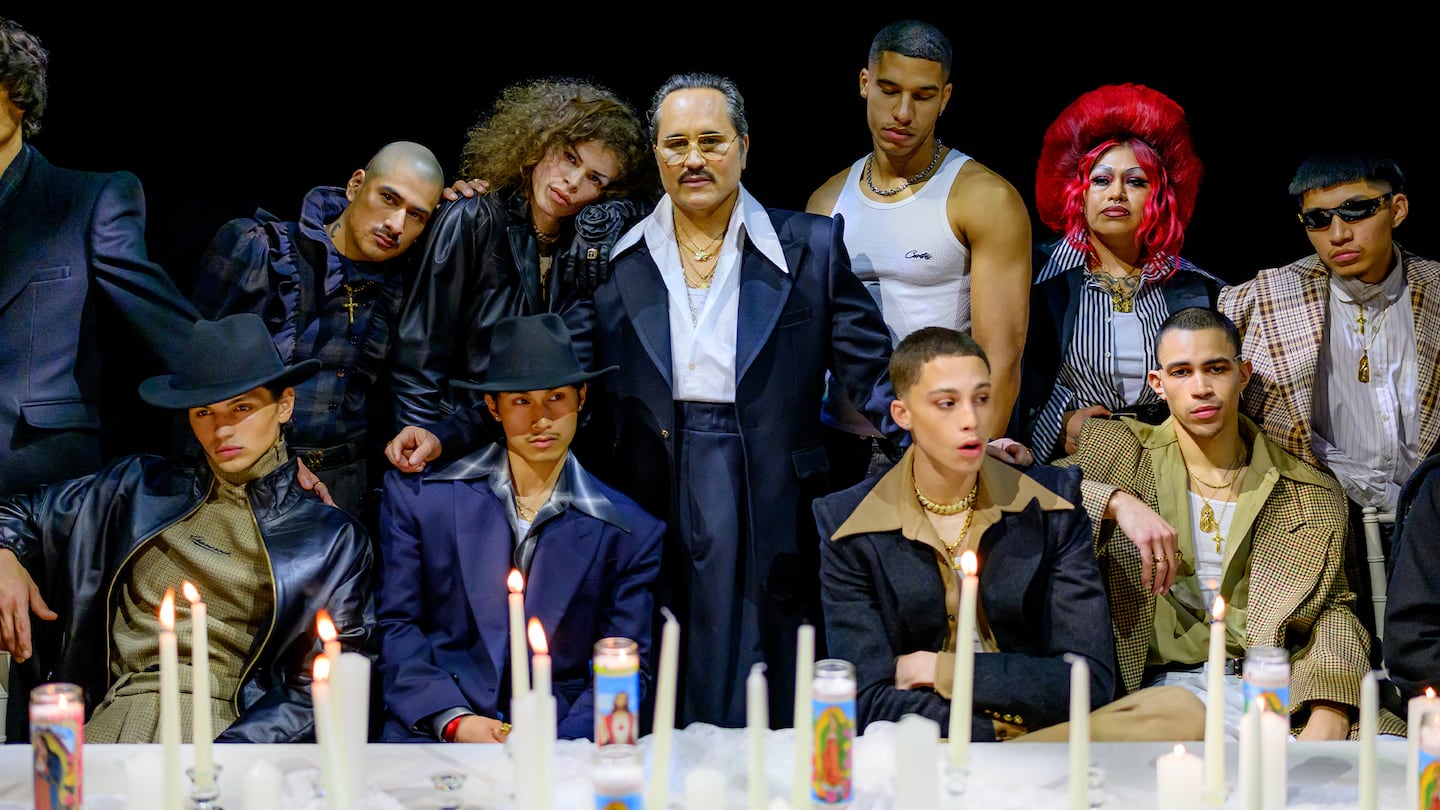
NEW YORK — The pastel unicorns, froggies, and horsies cavorting on a screen over our heads at Collina Strada almost, but not quite, obscured the fact that we were sitting in a basement under Rockefeller Center. The crowd at the label’s shows never disappoints. A pretty plaid dinosaur with green “Rocky Horror” platform boots could have diverted your attention from the runway, until the show started and you were riveted by the staggeringly diverse cast: Geena Gershon rocking a plaid coat with Renaissance sleeves; the disability rights activist Aaron Rose Philip in a chartreuse corset; a pregnant woman flaunting her bare belly above lacy shorts; even a hapless babe in arms.
The house demonstrated its usual enthusiasm for the Woodstock-infused hippie tropes that have floated on the edges of American culture for the last half century. This time the homage to peace and love included a full-on embrace of tie-dye, best when patterned on velvet. Despite the frills, the theme was Glamazon strength, underlined by models hoisting barbells ingeniously crafted from vegetables.
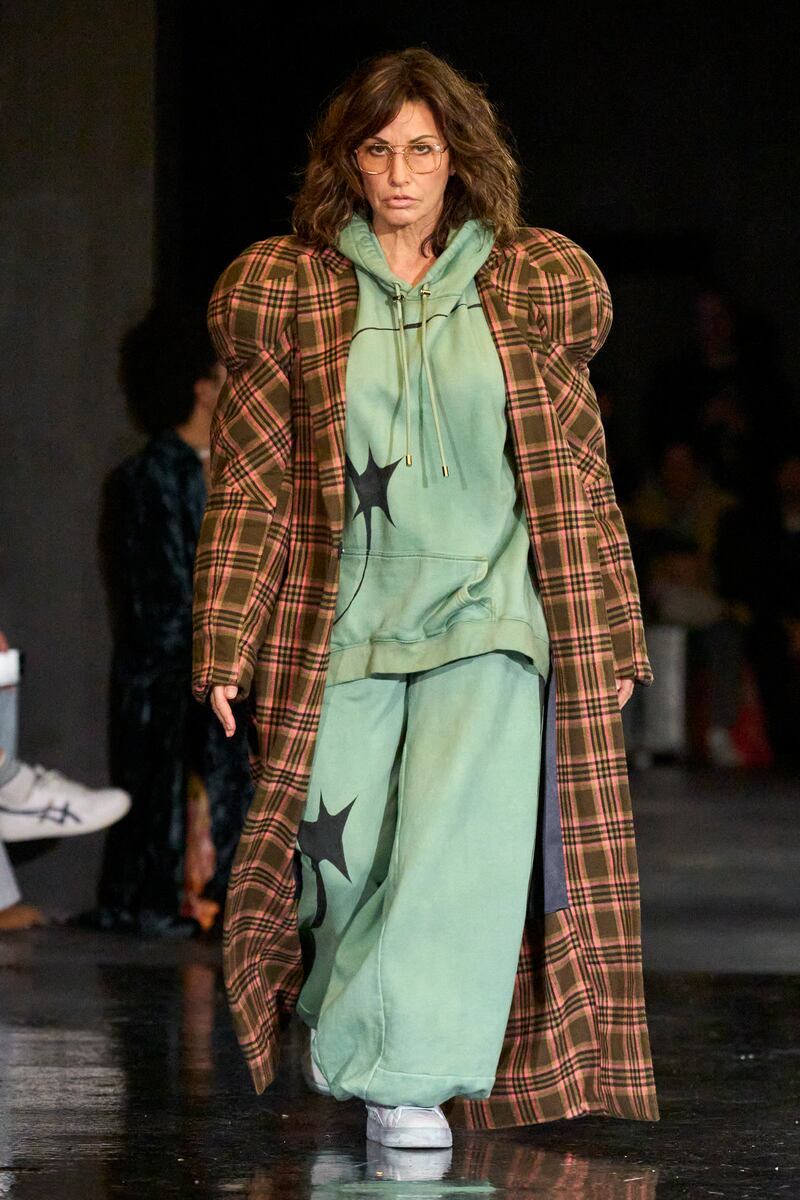
If Collina Strada offered a cheerful, slightly ironic commentary on the American dream, Willy Chavarria took the challenge far more seriously. In a vast space near the waterfront in Brooklyn, in a room glowing under red light, he unveiled a film entitled Safe from Harm. But the characters, beginning with a dolorous Paloma Elsesser, were the furthest things from safe. There was anguish written on their beautiful faces. Embraces were fraught with tears; two women shouted at each other unheard, separated by an impenetrable wall. But all was not as despairing as it seemed: in the final act, this outlaw community — gay and lesbian, Latinx and Black — were seen occupying the pews of a church. When they stood, they weren’t lining up for communion. They were dancing.
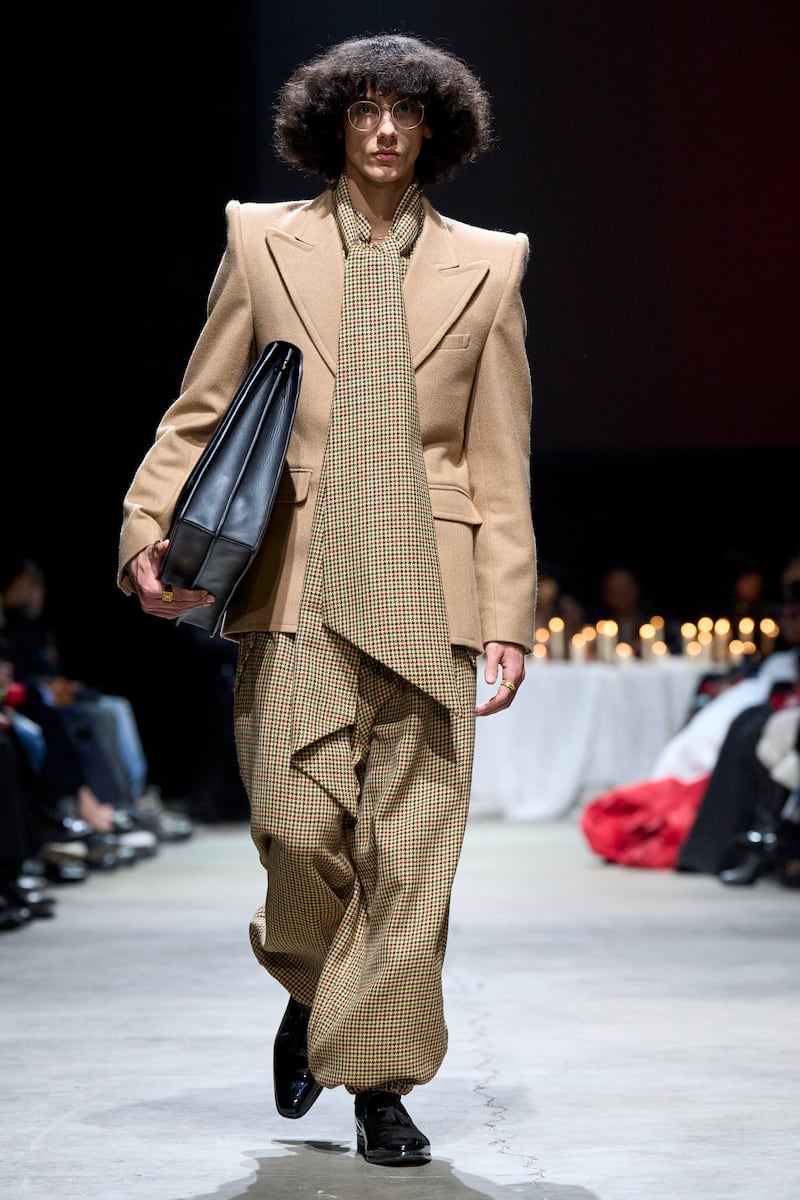
The runway show that followed this short movie spoke even more eloquently than the film. Chavarria’s clothes are remarkably accomplished: they manage to be exquisitely crafted without losing their street cred. Leather jackets had perfectly distended shoulders; a double-breasted houndstooth-checked coat swept the floor. The project was gender-neutral in the most unforced way: a guy managed to look butch even as he sported a puff-sleeved ruffled blouse. Capacious trousers put in one’s mind those pants called Oxford bags worn by young gentlemen 100 years ago, and you could easily picture “Brideshead Revisited’s” Sebastian Flyte in these checked numbers, though the sequined version would surely have got Anthony Blanche tossed into a Mercury fountain.
ADVERTISEMENT
It was unfortunate that Tommy Hilfiger followed Chavarria’s tour de force. He and Chavarria share the same blueprint, but Hilfiger’s was minus the dark undertones: this was Americana absent the angst. His rollicking show at the Oyster Bar in Grand Central Station also had baggy pants and maxi-coats and chunky knits, along with baseball jackets emblazoned with the letter H — perfect if your name is Henrietta. All of the above would have suited a fresh-faced freshman arriving on campus while the Vietnam War raged thousands of miles away.
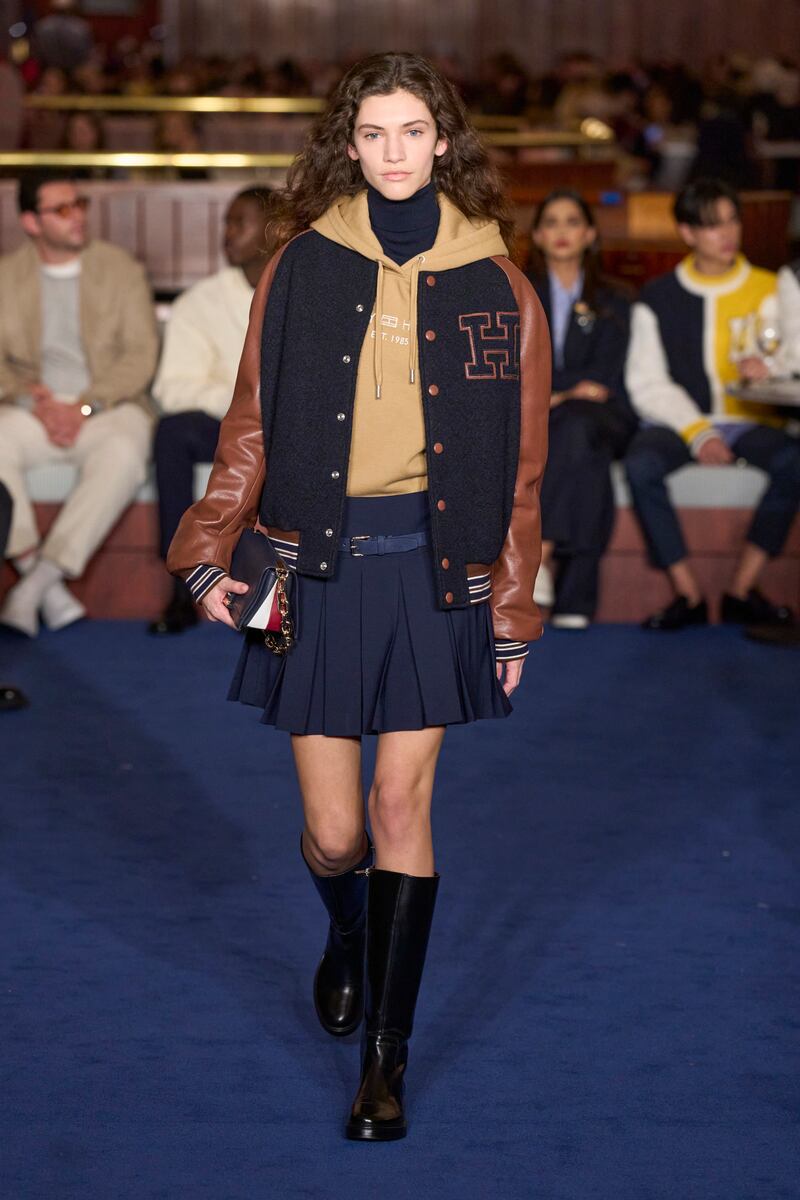
That co-ed’s louche sister might have preferred the gear at Anna Sui’s show, in the rare book room of the Strand Bookstore, which featured young women searching not for a first edition but for hidden treasures at the local charity shop. Sui’s love for the doe-eyed Mod wastrels who once roamed the King’s Road remains undiminished. Here were argyle sweaters with matching knee socks; vintage slips in sherbet hues; and studded velvet frocks. In the show notes Sui mentioned Aubrey Beardsley as an inspiration, and it is surely no accident that this English Art Nouveau illustrator also informed the sinuous designs at Biba, the highly influential, long-shuttered Swinging Sixties department store. (Freddy Mercury’s girlfriend worked there in Bohemian Rhapsody.) The lovely metallic brocade evening frocks that closed the show were a nod to the 1930s, an era that may offer an uncomfortable comparison to our own time.
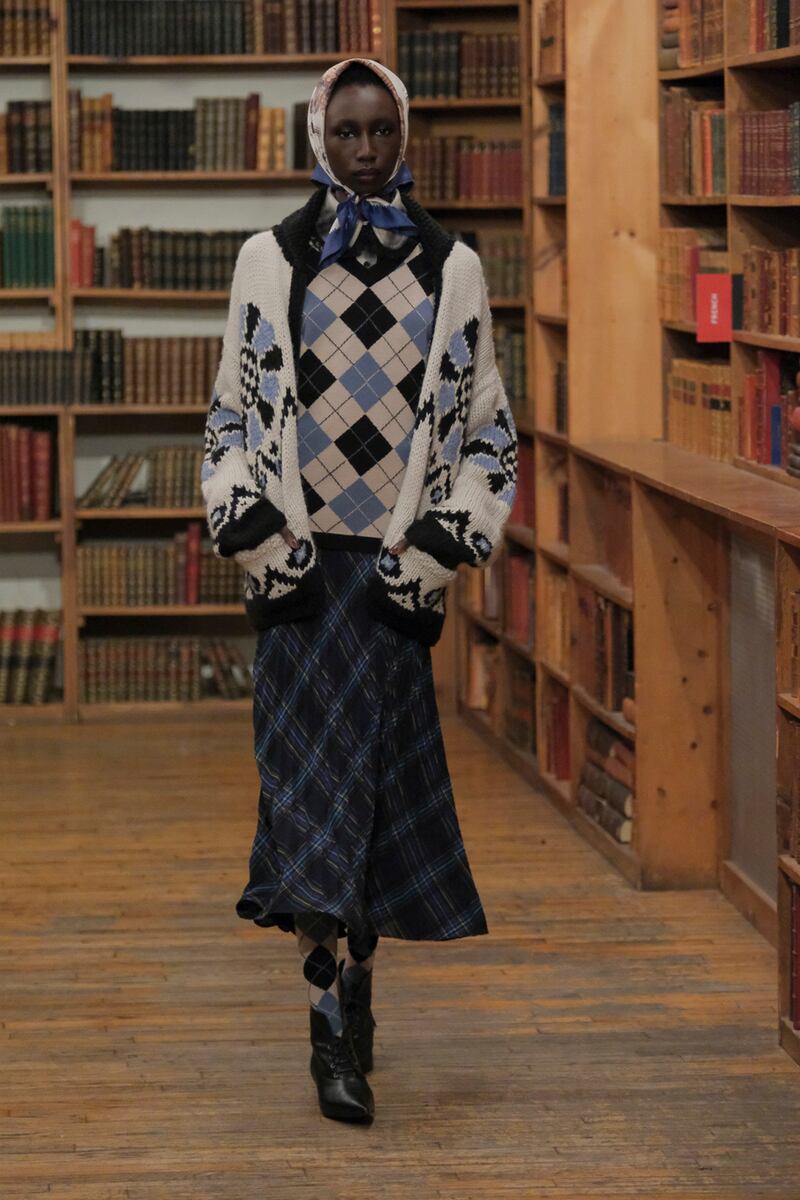
“Boobies, boobies, boobies. Nothin’ but boobies. Who needs ‘em??’” Neely O’Hara wails in Valley of the Dolls, and apparently Proenza Schouler thinks that the answer is everyone — or at least everyone needs to see them. Many of the dresses here were completely sheer, and some owed a debt to the master of bandage-wrapping, Helmut Lang. If you were seized by a sudden attack of modesty there were plenty of long coats for covering up.
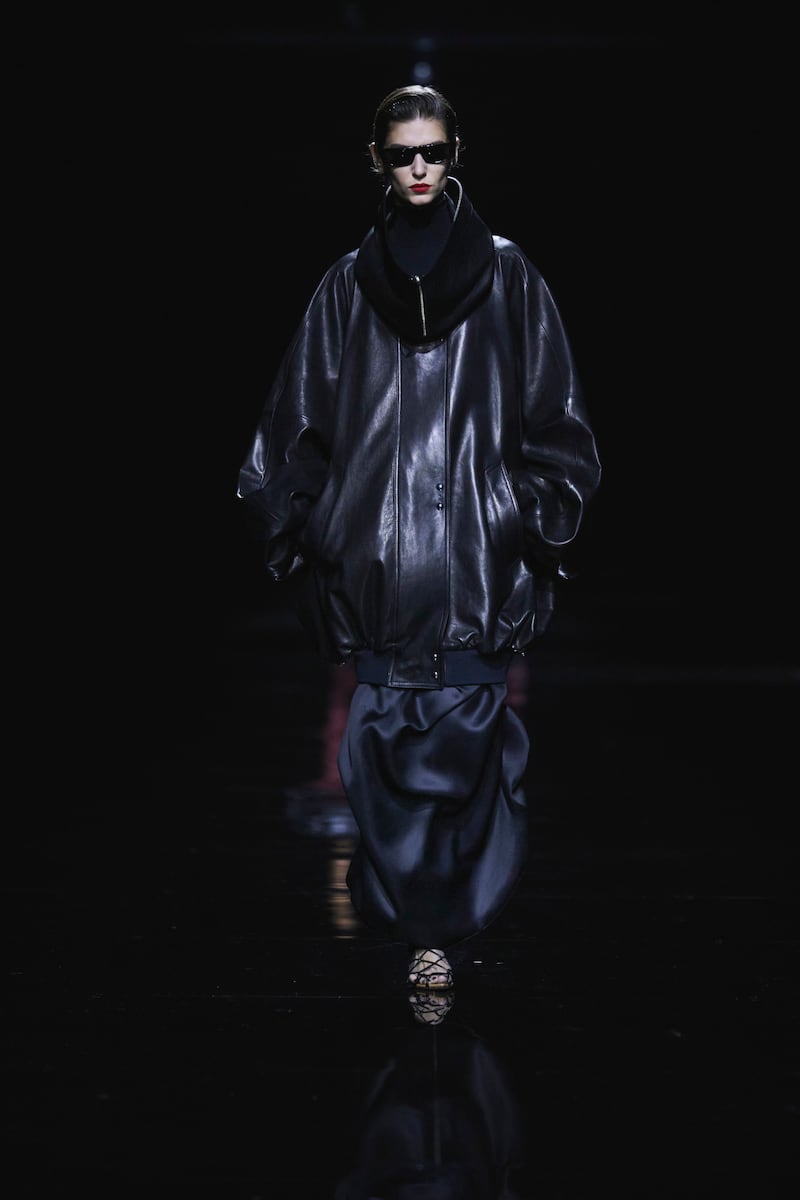
There were no errant bosoms on display at Khaite, who turned the lights out and seated the audiences around a huge black square, reminiscent of a giant boxing ring. But instead of pugilists out came the usual parade of gorgeous thin people, clad in the brand’s trademark big shouldered leather outerwear, along with puffy-twisty tops that nodded to Rick Owens, though they were tamer than Owens’ singular creations.
This New York season has thus far argued for a frankly bland palette — Eckhaus Latta’s collection could have been subtitled Fifty Shades of Beige — so it was a relief when Fforme introduced Kelly green and tomato red dresses into the mix. But for the plaintive live music from a person billed as a “psychedelic folk singer,” the show pretty much embodied that now hackneyed category “quiet luxury.” If you are not the sort of person who spills hot chocolate all over herself, you might like a pristine ivory coat, utterly devoid of embellishment. Short puffers had a similar austere appeal, though, since it was nearly 60 degrees outside on this particular February night, whether that item will get more than a few airings is not at all certain.
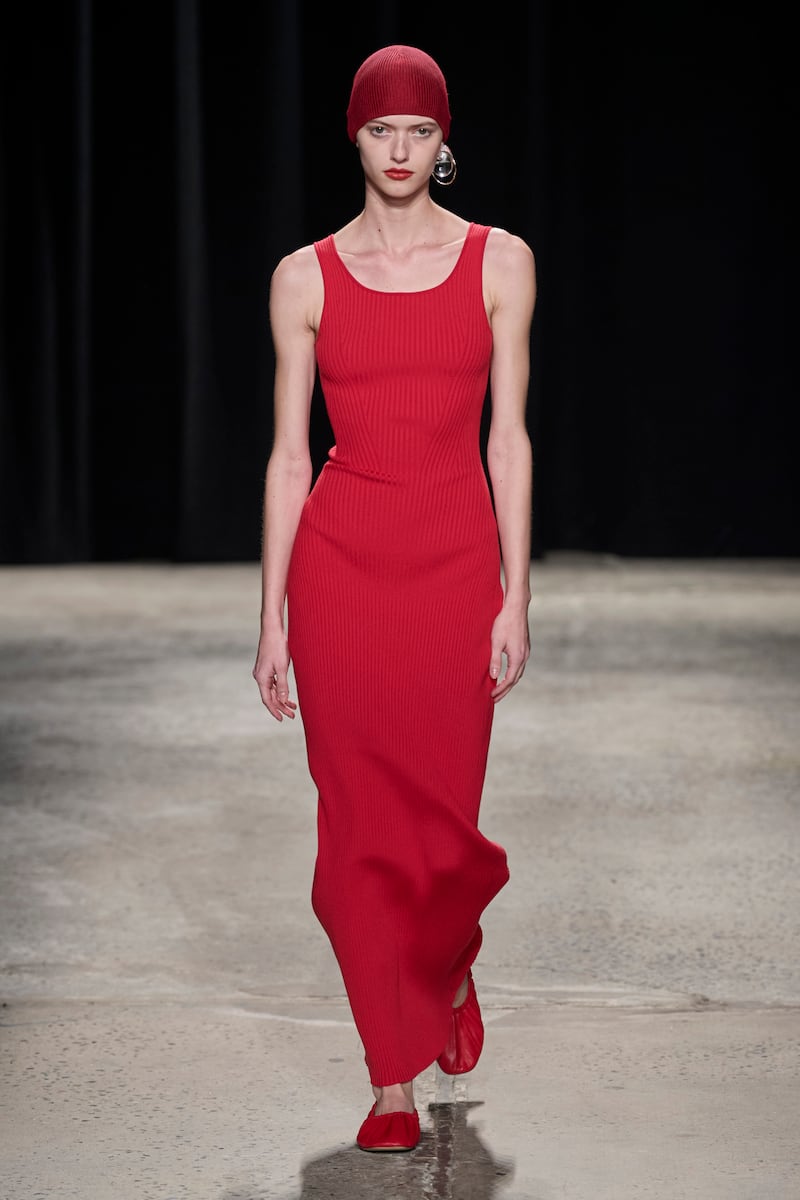
When Nora walked out on Torvald and slammed the door with a thud heard round the world, was she wearing a mustard-collared duffle coat with a Pierrot ruffle flopping out from the collar? Joseph Altuzarra seems to think so. The designer always includes a book on audience members’ chairs, and this time it was a compilation of four Ibsen plays. In any case, the clothes here were intended for a woman who is not dependent on her partner’s paycheck; they were eminently suitable for someone with a real job. It is Altuzarra’s fifteenth anniversary this year, and the celebration included his trademark curb-scraping winter coats — the outerwear default for the season — along with boardroom-ready pleated leather skirts and silky shirtwaists.
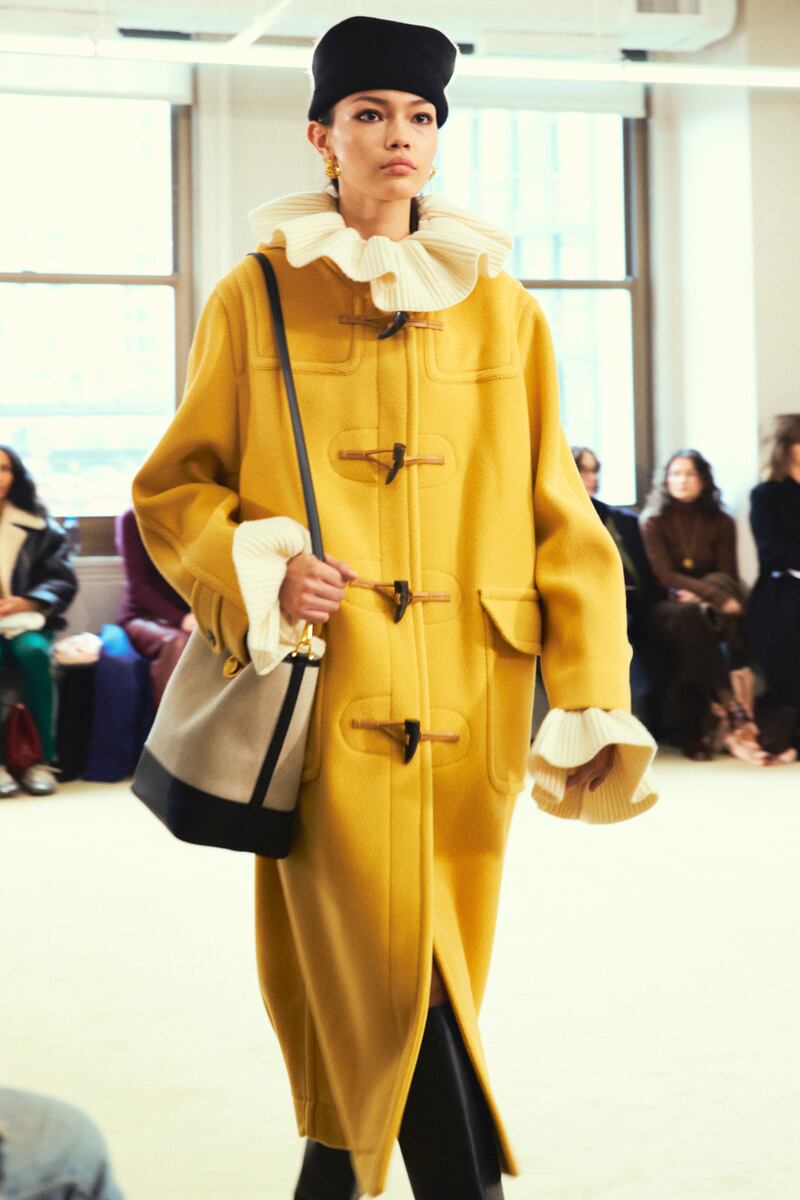
After spending several days staring at runways full of perfectly respectable, if, let’s face it, vaguely moribund clothes, the randy band of bad boys and girls that Ludovic de Saint Sernin assembled came as a welcome tonic. De Saint Sernin collaborated with the Mapplethorpe foundation for this collection, and one could see the influence of Robert Mapplethorpe’s flower photographs in the languid blossoms that punctuated tight shiny dresses with miniscule bra tops and sheer devore velvet tees. (The bare boobs here belonged mostly to the men.)
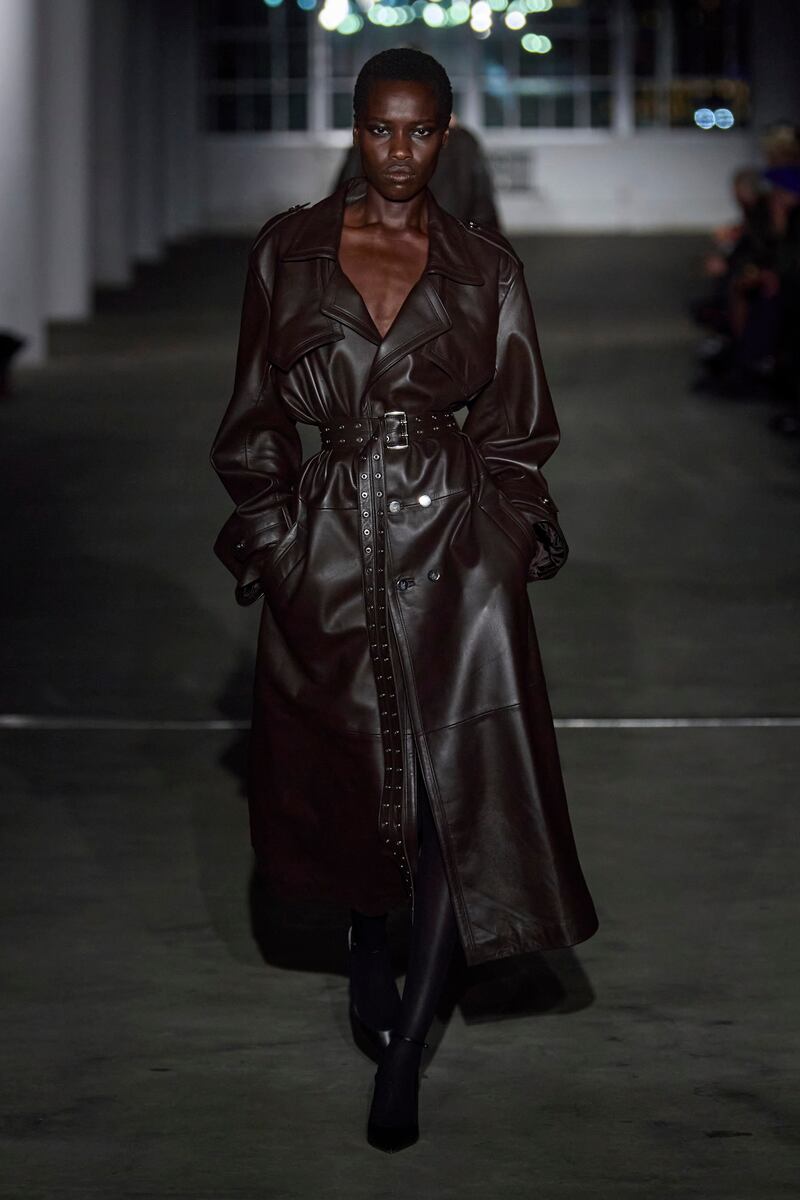
Those long leather coats that are everywhere this week have finally been liberated from their role as respectable toppers, and returned to their roots as signifiers of something louche and dangerous. Though a few of the models sported fetish masks, there was no need. The glorious menace of these spectacular clothes spoke volumes all on their own.
The designer tapped ‘Red Scare’ podcast host Anna Khachiyan to host a salon centred around the novel Gone With the Wind in a conversation that seemed designed to ruffle feathers.
At a quirky runway show ahead of New York Fashion Week, it was as if Mary Weiss of the Shangri-Las had found her way to Tokyo and sat down to share a Marlboro with Rei Kawakubo.
What happened to the most promising brand in American fashion?
From where aspirational customers are spending to Kering’s challenges and Richemont’s fashion revival, BoF’s editor-in-chief shares key takeaways from conversations with industry insiders in London, Milan and Paris.
BoF editor-at-large Tim Blanks and Imran Amed, BoF founder and editor-in-chief, look back at the key moments of fashion month, from Seán McGirr’s debut at Alexander McQueen to Chemena Kamali’s first collection for Chloé.
Anthony Vaccarello staged a surprise show to launch a collection of gorgeously languid men’s tailoring, writes Tim Blanks.
BoF’s editors pick the best shows of the Autumn/Winter 2024 season.